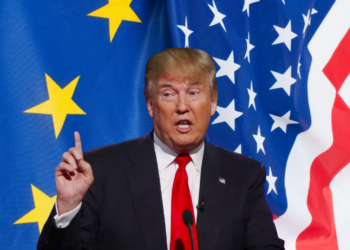There is a famous line from Roberto Benigni’s film “Johnny Stecchino” (1991), where a newcomer arriving in Palermo is told that among the “plagues” of the city, the one that “brings most shame to Sicily in the eyes of the World” is “traffic,” which puts “families against families.” The other two plagues are the erupting Etna and drought. The newcomer then becomes a mafia boss.
The impression the European Union gave after the last Summit of Heads of State and Government and that it is giving in the current debate is that the problem of the Union is immigration, whether legal or illegal. Certainly, there is traffic in Palermo, like in any big city, and there is immigration in Europe, like in any wealthier area compared with its neighbor. However, I would find it difficult to prioritize this over the issues the Union should be dealing with to secure a future that will allow it to remain the wealthiest market in the world and become a key player in foreign policy while ensuring the services its people need.
I see traffic as the main problem in Palermo and immigration in the Union as red herrings, ploys to satisfy some voters and hide what needs fixing. The debate on the Draghi and Letta Reports, two key starting points for our future, is, in fact, already over. There are occasional spurts: Enrico Letta was in Parliament this week to explain his work. However, the two texts have been put away neatly in a drawer, from where they will be pulled out now and then for a few quotes. But what they are asking for is too serious, too challenging, and too politically risky in the short term for often fragile governments and perhaps policies looking for a ruse to allow a little bit of everyone to “get around” in the chancelleries.
Migration is not a problem. It is a natural phenomenon, part of the human condition. It has always been and will always be there. Sending 12 or 200 people on an inflatable boat in the Mediterranean to a center in Albania (for those picked up by the Italians) or Uganda (as the Dutch would like to do) or to Kosovo (a destination thought up by the Danes) does not solve the problem. In the first nine months of 2024, irregular entries into the Union were, according to Frontex Border Agency data, 166,000, of which roughly 47,000 were in the central Mediterranean, the primary area of concern for Italy. Irregular entries do not mean that they are people who are not entitled to international protection; it simply means that they arrive without crossing a physical border or showing a passport, since almost always, they are in no condition to do so.
The problem of migration for a Continent as old as Europe (old in the sense of with an aging population needing care ) is not stopping it but managing it for the benefit of our economy. Then, of course, it is not that everyone has the right to stay (although, as long as there is space, how can you tell a person: no, you can’t come here?). Wouldn’t the money spent on building centers like these be better spent, for example, on funding migrant management programs? To see who can contribute or help themselves? Who has useful professional skills? Who can work to ensure that there are pensions for our elderly? Who can be encouraged to study?
The problem is that the right and populists exploit immigration for quick approval, while the left often follows suit. No one remains calm and strives to reason, understand, and explain.
English version by the Translation Service of Withub









![Una donna controlla le informazioni sul cibo specificate sulla confezione [foto: archivio]](https://www.eunews.it/wp-content/uploads/2014/12/Etichette-alimentari.jpg)

